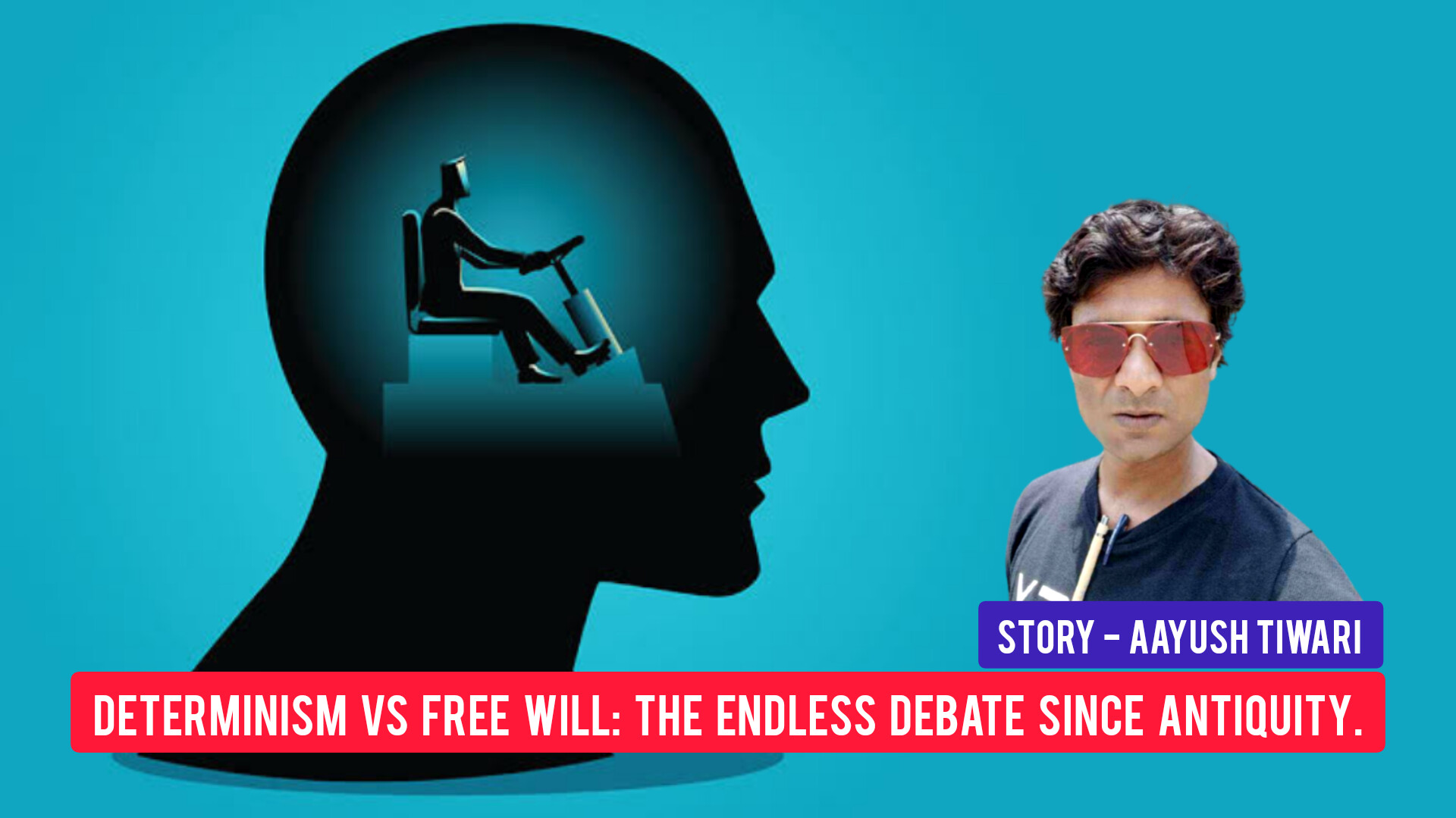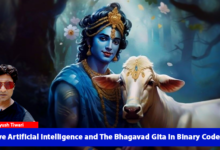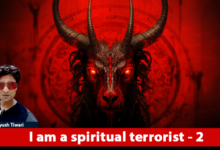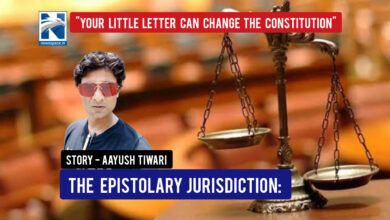
Philosophy is comprised of two Greek ingredients ‘Philos’ and Sophia : ie Love and wisdom. So philosophy is the insane love for wisdom and shabby hair, different colored socks are few traits observed of the Romeos of philosophy.
The ancient Indian philosophical cum scientists offer unique perspectives on this eternal debate, providing insights that resonate with the larger human quest for understanding our role in the universe. In this essay, we will delve into the thoughts of prominent ancient Indian and western philosophers, shedding light on their views on determinism and free will.
One of the earliest schools of thought in ancient India was the Samkhya philosophy, propounded by the sage Kapil. The Samkhya philosophy postulated a deterministic understanding of existence. According to Kapil Muni, the universe operates under a predetermined order, wherein actions and events are intricately connected in an unbreakable causal chain. This theory of causality, known as the Law of Karma, suggests that every action creates a ripple effect, determining future outcomes and shaping an individual’s life. While this deterministic perspective leaves little room for free will, the Samkhya school also discussed the concept of purusha (the individual self) and its potential to transcend the cycles of causality through self-realization. This idea hints at the possibility of attaining a higher state of consciousness that transcends determinism.
The philosophical system of Yoga, attributed to the sage Patanjali, also offers insights into the determinism vs free will conundrum. In Patanjali’s Yog- Sutras, the eight-fold path to enlightenment, free will is acknowledged as a fundamental aspect of human nature. The practitioner is invited to engage in self-discipline, self-control, and self-realization to overcome the deterministic forces of the mind and the external world. By cultivating awareness and directing one’s focus, individuals can exercise their free will to choose a path of liberation from the bondage of causality and conditioning.
Furthermore, the Advaita Vedanta philosophy, expounded by scholars like Adi Shankara, explores the nature of reality and the liberation of the individual soul. The Vedanta tradition posits that ultimate reality, or Brahman, is beyond determinism, free will, and the duality of existence. From this perspective, the true nature of the self is not subject to the limitations of causal determinism or individual will. Adi Shankara emphasized the importance of self-inquiry and the realization of the non-dual nature of reality as the means to transcend the illusions created by the mind and attain spiritual liberation.
Another prominent ancient Indian philosopher, Nagarjuna, contributed to the conversation on determinism vs free will within the context of Buddhism. Nagarjuna’s philosophy, known as Madhyamaka, emphasized the emptiness (sunyata) of all phenomena, challenging the notions of inherent existence and a fixed reality. Nagarjuna argued that both determinism and free will are ultimately empty of inherent existence, as they are subject to conditioned arising and dependent on numerous factors coming together. From this perspective, determinism and free will are seen as interdependent and interrelated, with neither being absolute or independent.
These ancient Indian philosophical perspectives offer profound insights into the debate surrounding determinism and free will. While some schools lean towards determinism, recognizing the interconnectedness of actions and events, others emphasize the individual’s capacity for self-realization, self-discipline, and transcendence of causal conditioning. These nuanced perspectives shed light on the vastness and diversity of the human quest for understanding and illuminate the potential for individual agency amidst the complex tapestry of existence.
So the ancient Indian philosophers contribute a wealth of knowledge to the age-old debate of determinism vs free will. Through their thought-provoking insights, we gain a deeper appreciation for the nature of reality, the interconnectedness of actions, and the potential for individuals to transcend deterministic forces. While these ancient Indian perspectives may not provide a definitive answer to this philosophical predicament, they invite us to explore the depths of our consciousness, challenge our assumptions, and contemplate the intricate mysteries of existence.
The tension between determinism and free will has persisted throughout the ages, captivating the minds of philosophers, theologians, and scientists alike. At its core, this existential predicament seeks to answer one fundamental question: to what extent are human actions and choices predetermined, and to what extent are they truly our own? Philosophers from various schools of thought have explored this complex enigma, offering unique perspectives and shaping the discourse. In this essay, we will examine some of these influential figures and their contributions to the determinism vs free will debate.
One of the earliest proponents of determinism was the ancient Greek philosopher, Anaximander. In his cosmology, he argued that everything in the universe adheres to predetermined laws, including human actions. Anaximander believed that these laws governed the course of nature, rendering free will an illusory concept. His deterministic perspective resonated with later thinkers, laying the foundation for subsequent discussions on the subject.
Centuries later, Stoic philosophers such as Epictetus and Chrysippus developed deterministic philosophies, emphasizing the notion of fate. According to the Stoics, humans are subject to the whims of a predetermined cosmic order, or Logos, and must accept their roles within it. An individual’s freedom, they posited, lies in their ability to align themselves with this cosmic order, as opposed to resisting it. Their deterministic framework inspired later philosophers to explore the limitations and possibilities of free will.
In contrast to determinists, a significant figure defending the concept of free will was Immanuel Kant. Within his moral philosophy, Kant argued that human autonomy and moral responsibility necessitate the existence of free will. He contended that without the ability to make choices freely, humans would lack the moral agency essential for moral judgment and accountability. While Kant acknowledged the influence of external factors on an individual’s decision-making, he maintained that ultimate freedom lies within rationality and the ability to act in accordance with moral principles.
Moving forward, the French philosopher Jean-Paul Sartre played a pivotal role in shaping the existentialist perspective on free will. Sartre vehemently rejected determinism, positing that humans are entirely free to choose their actions without the constraints of external forces. Believing that existence precedes essence, Sartre argued that individuals create their own essence through their choices, rendering determinism incompatible with human existence. For Sartre, freedom was not just a concept but a profound responsibility, as it brought forth the burden of choice and the necessity of authentic self-creation.
Another influential philosopher in this debate is Daniel Dennett, a contemporary figure known for his compatibilist position. Compatibilism attempts to reconcile determinism with free will, suggesting that they are not mutually exclusive concepts. Dennett argues that even if human actions are determined by external factors such as genetics or environmental influences, we can still consider them as free as long as they are in accordance with our desires, beliefs, and values. He claims that personal autonomy and responsibility can coexist with determinism, offering a perspective that strives to bridge the gap between the opposing views.
By examining the contributions of these philosophers, we gain valuable insight into the rich tapestry of the determinism vs free will debate. While the philosophers mentioned in this essay represent only a fraction of the vast discourse on this topic, their perspectives provide a starting point for further exploration, reflection, and personal contemplation. In the end, this perennial debate elicits profound questions about the nature of humanity, the extent of our agency, and the balance between our perceived freedom and the forces that shape our lives.





